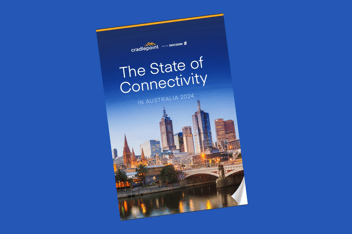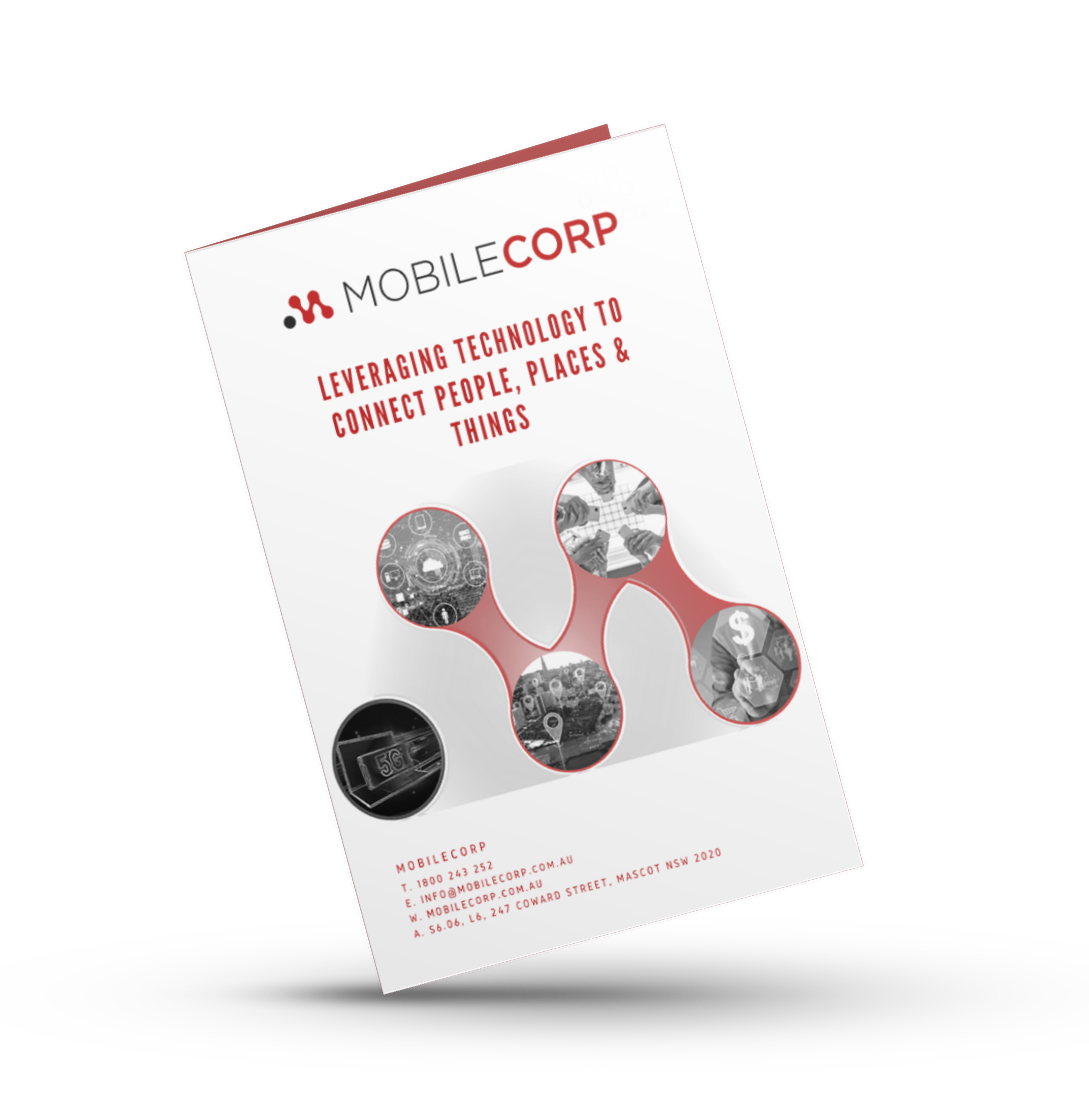Today's hybrid workforce - distributed between office and remote - makes the move from traditional to modern PC management an imperative for IT leaders.
Before the pandemic it might have been a 'nice to have.' Now, not so much. The risk of remaining with traditional legacy PC management has escalated in line with the increased distribution of the workforce.
Three threats of traditional legacy management
Traditional PC management is how IT teams have managed Windows desktops and laptops for decades. In essence it refers to an IT team’s ability to effectively commission, support, and decommission computing devices assigned to individual users. Traditional PC management is conducted on-premises and on company infrastructure.
Unfortunately this is not the world that we live in anymore. IT teams who persevere with traditional PC management are exposing their organisations to increased costs, heightened risk of security breach, and an inflexible, less-productive employee experience.
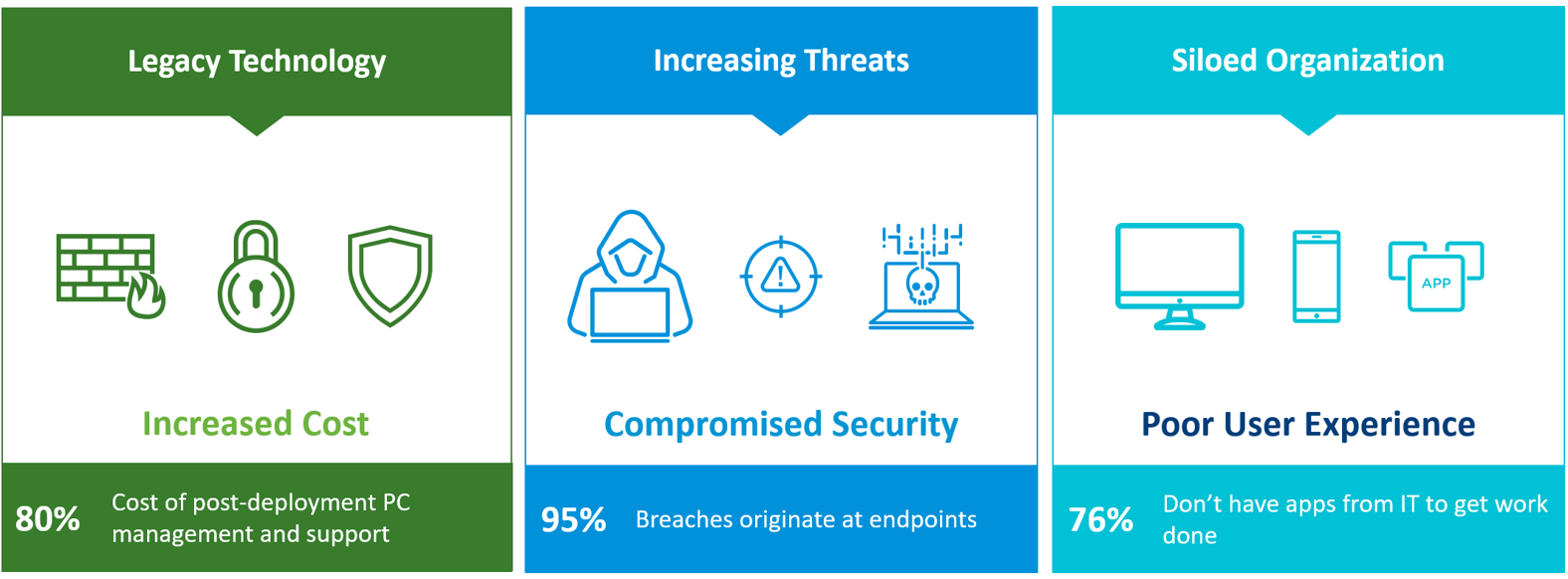
Three more reasons why traditional PC management is not cutting it anymore
#1. We are mobile, distributed, hybrid...etc
The days of workers sitting at their desk working on large immovable PCs is long gone. Even those who do still work in a centralised office more often than not are carrying a laptop. The Covid-19 pandemic only accelerated a trend which was already in play.
Employees expect to work anywhere on any device and have instant access to the tools and data they need to be productive. Employees do not differentiate between mobile devices and PCs. The traditional siloed approach to mobile devices as separate to desktops makes no sense at all to a worker who uses all devices in sync.
Traditional PC management practices are not aligned with today's workforce.

#2. Windows 10
Until Windows 10 was released in 2015, the options for moving to a modern management approach were limited. But Windows 10 changed all that.
Windows 10 introduced a new era of PC management - one that put the user at the centre, simplifying the way IT onboards and updates devices, and scales to meet changing demand.
Microsoft's latest version of Windows introduced a consolidated operating system platform to unify all Windows platforms across multiple devices, including Windows Phone and tablets, with universal apps that can be downloaded from the Windows Store and run on all Windows devices.
These advances change Windows from a PC‐centric operating system to one that is device‐agnostic and a critical enabler of the digital workplace. This new way of managing Windows is more closely aligned to the MDM‐based approaches found in today’s mobile management tools.
Windows 10 opened the door - window? - for modern PC management.
#3. Expensive, Insecure, Labour-intensive
The traditional approach to PC management is stuck in a device-centric model. It is expensive, time consuming and fraught with security risks.
VMware estimates a cost reduction of 66 percent in total cost of ownership with a move from traditional to modern management. This is principally, due to zero IT touch deployments, a zero-server footprint, increases inautomation and visibility, end-user self service catalogs and unified endpoint management.
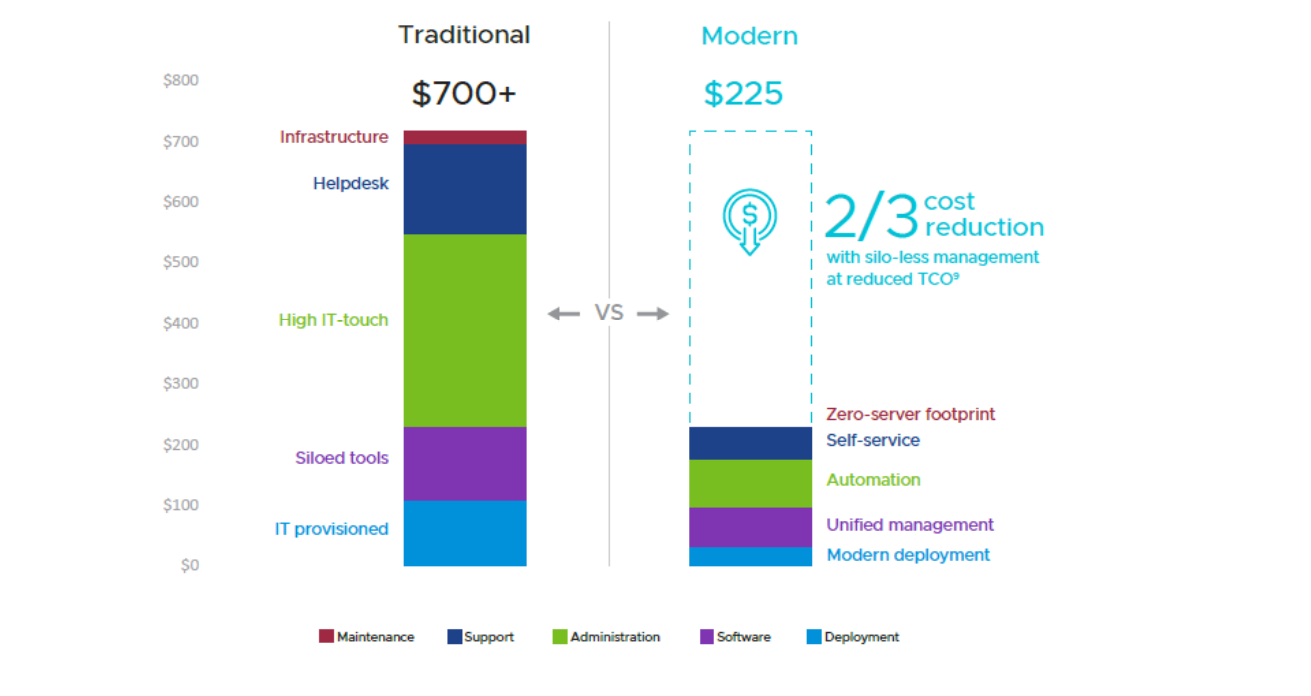
Compare Traditional v Modern Management
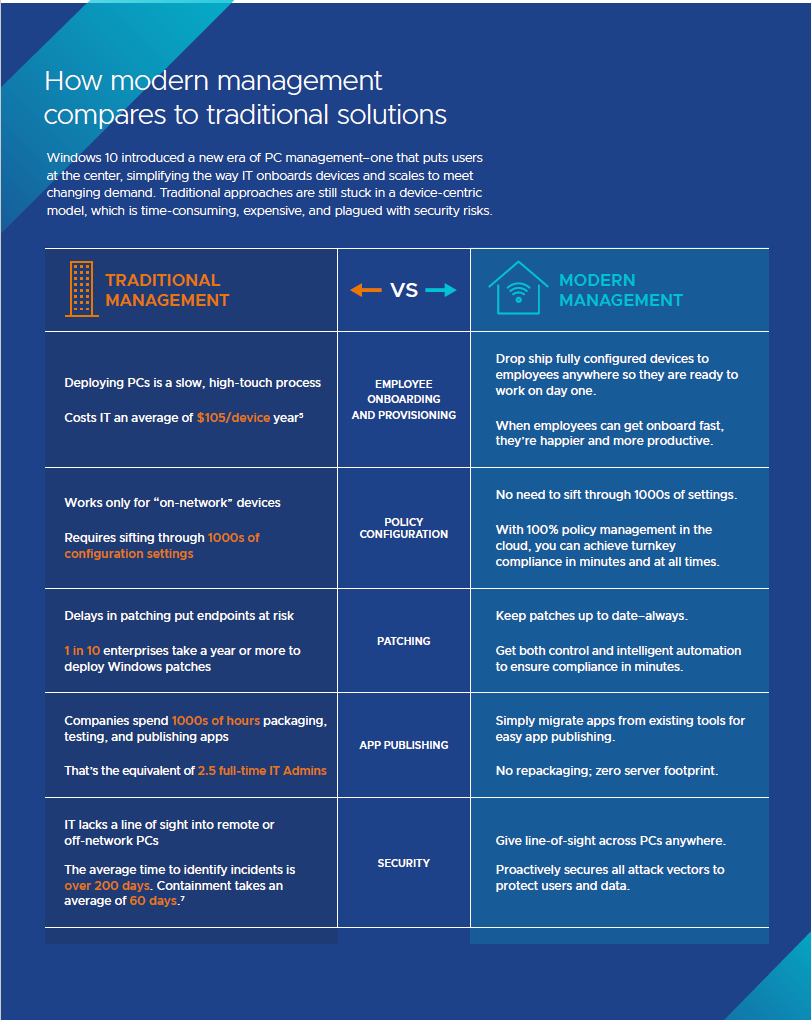
Register for our Modern Management webinar
Topic: Modern Management is the blueprint for a Future Ready Workforce
Webinar: Wednesday 19 May 1.00-2.00pm AEST
Speakers: VMware | MobileCorp
- An in-depth presentation covering why modern management is critical for digital readiness in the age of remote work.
- Understand the best practices on making the move to modern management and what we’re hearing from customers when they take the modern management journey.
- Learn how to unify mobile and PC management
As the workforce becomes more distributed, IT must continue to fulfill its central mission: to connect and secure endpoints so that employees can get the apps and services they need to stay productive and do their best work–wherever they are.
Yet many IT teams have discovered that traditional PC management can’t keep up. It doesn’t provide the agility and security needed to support employees in every location, quickly and consistently.
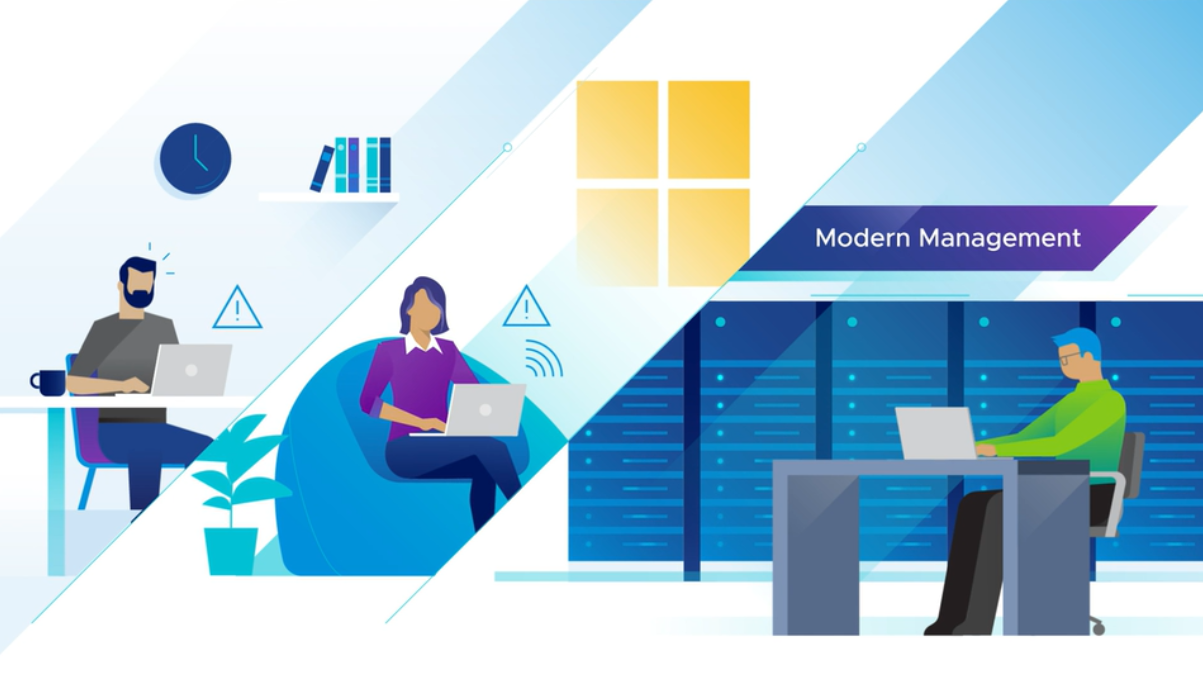
About MobileCorp
MobileCorp is an Australian communications technology company providing Mobile Device Management, Managed Mobility Services, Complex Data and IP Networks, and Unified Communication solutions. It has a proven track record providing solution architecture, build, deployment, and managed services for Australian enterprise and business.
Mobile Devices Michelle Lewis 06 May 2021
Related Posts
Popular Tags
- Mobility (80)
- Mobile Devices (79)
- Telstra (65)
- 5G (60)
- MobileCorp Managed Services (55)
- Mobile Network (34)
- Networks (34)
- Cradlepoint (31)
- Apple (29)
- MobileCorp (29)
- iPhone (25)
- Remote Working (23)
- Covid-19 (16)
- Network (16)
- Mobile Security (15)
- Wireless WAN (15)
- Cyber Security (14)
- UEM (14)
- MDM (11)
- Mobile Expense Management (10)
- Mobile Device Management (9)
- TEMs (9)
- Mobile Device Lifecycle (8)
- Cloud (7)
- Unified Comms (7)
- Unified Communications (7)
- Wandera (7)
- Android (6)
- Sustainability (6)
- Data Networks (5)
- Network Security (5)
- Samsung (5)
- Security (5)
- Digital Experience (4)
- IOT (4)
- Microsoft Intune (4)
- IT Services (3)
- Microsoft (3)
- Data (2)
- Government (2)
- Microsoft 365 & Teams (2)
- Retail (2)
- nbn (2)
- webinar (2)
- Blog (1)
- EMM (1)
- Emerging Technologies (1)
- Hosted Telephony (1)
- Managed Desktops (1)
- SD-WAN (1)
- Starlink (1)
- Telstra Services (1)
- video (1)




